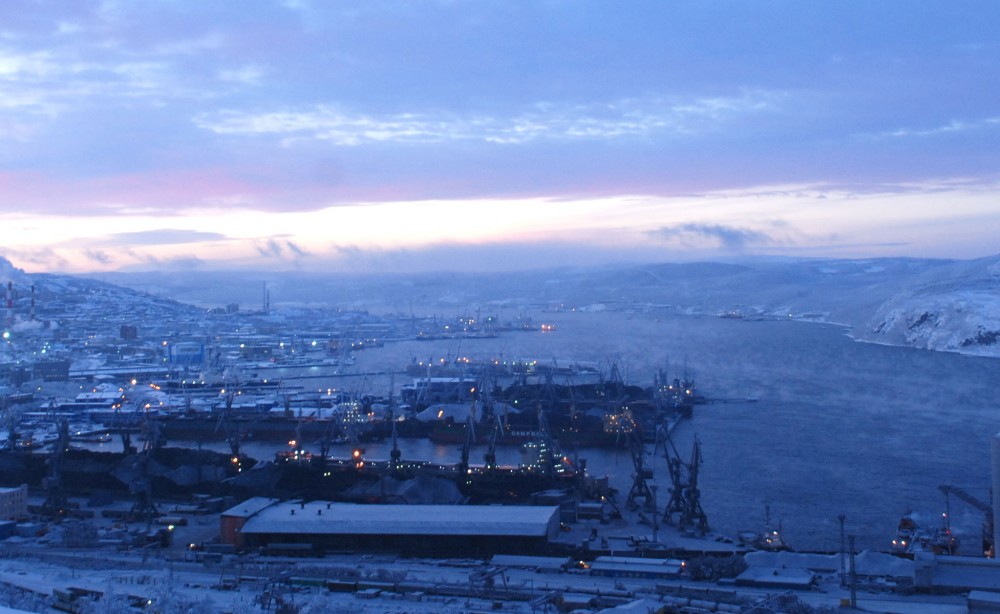Arctic seaports bustle as shipping on Russia’s Northern Sea Route reaches new high

A record-beating 9,74 million tons of goods was transported on the Russian Arctic route in 2017. That resulted in a very good year for Murmansk and several other north Russian ports.
Figures from the Association of Russian Sea Ports show that the Russian Arctic seaports in 2017 handled a total of 74,2 million tons, an increase of 49,1 percent compared with 2016. The growth is rooted in a major general hike in Russian Arctic shipments.
According to the Russian Federal Agency for Maritime and River Transport, a total of 9,737 million tons of goods were last year shipped on the Northern Sea Route, the biggest annual volume ever. Only a modest share of it – 194,364 tons – was shipped transit across the route, between the Bering Strait and the Novaya Zemlya, the Agency informs.
It all has a whopping effect on Murmansk, which handled a major share of the shipments.
According to data from the Seaport Association, Murmansk accounted for almost two thirds of all the total port turnover. The harbor masters in the Arctic city last year saw a total of 51,7 million tons of goods being shipped through the port, an increase of 54,5 percent compared with the previous year.
It is one of the best results in the whole post-Soviet period. Only in 2010, did goods volumes in Murmansk exceed the ones from 2017.
Volume will increase in coming years
The growth comes as several major Arctic industrial projects are in the making. Among them is the Yamal LNG and the projected Arctic LNG 2, both of them with major effects on regional shipping. Also oil shipments from new projects like the Novy Port, as well as the terminal at Varandey, are leading to the higher volumes.
The Varandey terminal in 2017 handled 8,2 million tons of oil, and increase of 3,4 percent year-on-year. It is the best result ever for the installation which is owned and managed by Lukoil.
Of the volumes handled by ports in Murmansk, as much as 29 million was oil products. Meanwhile, the volumes of minerals and ores traditionally handled by the port remains stable. Press spokesman from the Murmansk Commercial Sea Port, Bogdan Khmelnitsky says to the Barents Observer that his port in 2017 handled about 15 million tons, most of it coal.
The Murmansk port now operates on the limits of possible capacity, experts say to TKS. Meanwhile, forecasts show that volumes will continue to grow over the next years, possibly to more than 70 million tons after year 2020.
Also Sabetta, the new port on the Yamal Peninsula, in 2017 recorded huge growth. According to the Federal Agency for Maritime and River Transport, as much as 7,99 million tons of goods were handled at Sabetta, up from 2,85 million tons in 2016.
Related stories from around the North:
Canada: Arctic nickel, not oil, could soon power the world’s cars, Blog by Mia Bennett, Cryopolitics
Finland: A cruise ship bound for the North Pole, The Independent Barents Observer
Germany: Cheap oil from the Arctic? Fake news, says climate economist Kemfert, blog by Irene Quaile, Deutsche Welle
Norway: An international collaboration behind Russia’s second Arctic LNG project, The Independent Barents Observer
Russia: Foreign shipments of oil, natural gas and coal banned along Russia’s Northern Sea Route, The Independent Barents Observer
Sweden: Swedish minister Margot Wallström takes on the lead in Barents, Radio Sweden
United States: Big questions emerge over $43 billion gas-export deal between Alaska and China, Alaska Dispatch News



